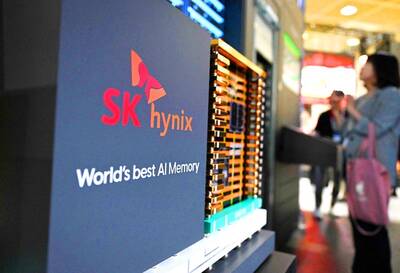Japan’s All Nippon Airways Co Ltd (ANA) is buying three Airbus SAS A380 aircraft in a billion-dollar deal, business daily Nikkei said yesterday, making it the first Japanese carrier to own the superjumbo jet.
The Japanese airline plans to introduce the double-decker airplanes on flights to Hawaii and other overseas destinations, in an effort to boost its international business.
The company paid about ¥150 billion (US$1.24 billion) for the three A380s, which each have 500 seats, more than double the seating than on ANA airplanes that currently fly to Hawaii, the business daily said.
In 2014, ANA was ahead of its rival Japan Airlines Co Ltd (JAL) in terms of passenger count on international flights, but JAL served more people on the Tokyo-Hawaii route — 35 percent of all Hawaii-bound passengers compared with ANA’s 20 percent.
ANA hopes the superjumbo purchase will give it a leg up and allow it to increase the number of people it serves on flights to Hawaii. About 1.5 million people travel from Japan to Hawaii ever year, according to the Hawaii Tourism Authority.
ANA’s domestic rival Skymark Airlines Inc signed a contract with Airbus in 2011 to buy six A380s, but the superjumbo manufacturer canceled the US$2.2 billion order in July 2014, apparently over concerns it would not get paid.
In October last year, ANA announced six-month net profit soared 51 percent, as a jump in inbound tourism boosted its international business, while falling oil prices also helped the airlines’ finances.

Intel Corp chief executive officer Lip-Bu Tan (陳立武) is expected to meet with Taiwanese suppliers next month in conjunction with the opening of the Computex Taipei trade show, supply chain sources said on Monday. The visit, the first for Tan to Taiwan since assuming his new post last month, would be aimed at enhancing Intel’s ties with suppliers in Taiwan as he attempts to help turn around the struggling US chipmaker, the sources said. Tan is to hold a banquet to celebrate Intel’s 40-year presence in Taiwan before Computex opens on May 20 and invite dozens of Taiwanese suppliers to exchange views

Application-specific integrated circuit designer Faraday Technology Corp (智原) yesterday said that although revenue this quarter would decline 30 percent from last quarter, it retained its full-year forecast of revenue growth of 100 percent. The company attributed the quarterly drop to a slowdown in customers’ production of chips using Faraday’s advanced packaging technology. The company is still confident about its revenue growth this year, given its strong “design-win” — or the projects it won to help customers design their chips, Faraday president Steve Wang (王國雍) told an online earnings conference. “The design-win this year is better than we expected. We believe we will win

Power supply and electronic components maker Delta Electronics Inc (台達電) yesterday said it plans to ship its new 1 megawatt charging systems for electric trucks and buses in the first half of next year at the earliest. The new charging piles, which deliver up to 1 megawatt of charging power, are designed for heavy-duty electric vehicles, and support a maximum current of 1,500 amperes and output of 1,250 volts, Delta said in a news release. “If everything goes smoothly, we could begin shipping those new charging systems as early as in the first half of next year,” a company official said. The new

SK Hynix Inc warned of increased volatility in the second half of this year despite resilient demand for artificial intelligence (AI) memory chips from big tech providers, reflecting the uncertainty surrounding US tariffs. The company reported a better-than-projected 158 percent jump in March-quarter operating income, propelled in part by stockpiling ahead of US President Donald Trump’s tariffs. SK Hynix stuck with a forecast for a doubling in demand for the high-bandwidth memory (HBM) essential to Nvidia Corp’s AI accelerators, which in turn drive giant data centers built by the likes of Microsoft Corp and Amazon.com Inc. That SK Hynix is maintaining its